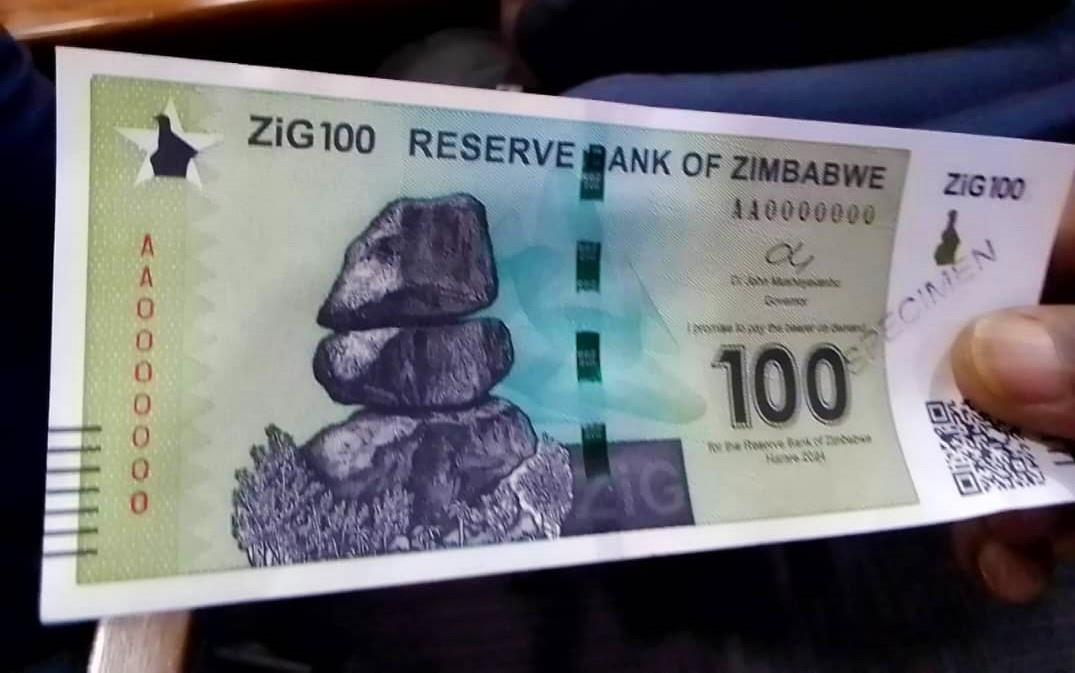
Zimbabwe Replaces Local Dollar With New Gold-Backed Currency Called Zig
Zimbabwe, in its latest bid to end the serial collapse of the local dollar, has replaced it with a new unit called ZiG, which will be backed by a basket of foreign currencies, gold and other precious metals.
Central Bank Governor John Mushayavanhu told a press conference in Harare, the capital, on Friday, that the ZiG would be launched on April 8 at an introductory rate of 13.56 per dollar and a new interest rate set at 20%.
That compares with the 130% on the old unit, which was the highest central bank rate in the world. Banks will convert their current Zimbabwean dollar balances into the ZiG, he said.
"We want a solid and stable national currency in this country,” he said. "It does not help to print money. Certainly under my watch it is not going to happen.”
File photo: Bond notes in the capital Harare, Zimbabwe, November 28, 2016.
The sweeping move is Zimbabwe's sixth attempt to have a functional local currency since 2008, when inflation crossed 500 billion percent, according to International Monetary Fund estimates, rendering it worthless.
The current Zimbabwean dollar has lost four-fifths of its value on the official market since the start of the year, making it the world's second worst-performing currency.
The plunging currency has led to more than 80% of transactions being done in dollars and inflation quickening to 55.3% in March from 47.6% the prior month.
The inflation rate is expected to decline to 2% to 5% by year-end as a result of the currency changes, the governor said.
President Emmerson Mnangagwa first hinted in February that his government will introduce a "structured currency.” Then, Finance Minister Mthuli Ncube said it may be backed by gold and the central bank postponed its monetary-policy statement to give final touches to the plan.
Mushayavanhu, who took over as central bank governor on March 28 - a month earlier than the initial start date - pledged a return to more orthodox monetary policies.
"We are not going to be involved in any quasi-fiscal activities,” he said. "I have no intention to do other people's jobs.”

Legal Disclaimer:
MENAFN provides the
information “as is” without warranty of any kind. We do not accept
any responsibility or liability for the accuracy, content, images,
videos, licenses, completeness, legality, or reliability of the information
contained in this article. If you have any complaints or copyright
issues related to this article, kindly contact the provider above.

















Comments
No comment